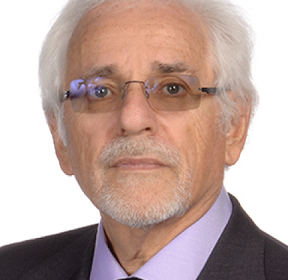
Kenneth Serota
USATitle: The Psychological effects of the COVID-19 pandemic among dentists: An evaluation of perceived stress, psychological distress and coping strategies
Abstract:
Given the unprecedented existential challenges of the SARS-CoV-2 pandemic on health care professionals (HCPs) worldwide, it is essential to monitor, examine, and understand the ongoing consequences and determine structured mitigation efforts for their short- and long-term control. We investigated the background of perceived stress among dental health care professionals (DHCPs) and identified risk factors contributing to perceived stress because of the COVID-19 crisis. We further sought to determine the hierarchy of coping management strategies which would prove most effective in mitigating the stress and psychological distress ensuant from the psycho-disruptions of the pandemic. Licensed dentists who were members of the Hungarian Dental Association were invited to answer an electronic test battery. Data pertaining to general demographic and dental related variables was electronically collected from 182 dental practitioners. Income and financial status were included among the general demographic individual and contextual variables, and aerosol propagation among the dental related variables. Factor analysis was used to ascertain COVID-19 related perceived stress. Distress manifested as impulsiveness, lack of interest in social connections, emotional disengagement, mood swings, and acknowledgment of emotional exhaustion because of the pandemic. Financial status, number of years in practice and the feeling that not even the strict compliance with professional rules can fully resolve the issues caused by aerosol propagation significantly predicted the level of perceived stress, while age, financial status and the feeling that not even the strict compliance with professional rules can fully resolve the issues caused by aerosol propagation significantly predicted the level of perceived distress.The randomization of the data controlled the relevant confounding factors pertaining to perceived stress because of contagion from aerosols and financial insecurity. Years spent in dental practice and age were protective factors against perceived stress. Physical activity and socialization were found to be the primary stress management strategies used to sustain and/or enhance mental health. Addressing the resolution of financial concerns, engaging in practice management revisions, and involvement with the implementation of infection control measures were perceived as being more useful than mindfulness and volunteering, techniques that are typically associated with behavioral psychotherapy for stress management. The findings suggest the need to develop support systems and include stress management education in the curricula of health care institutions, and as a component of continuing professional education programs, to foster positive mental health coping management strategies for HCPs.
Biography:
To be clear, I am not a researcher. I undertook this project after interviews with colleagues at the outset of COVID for clinial purposes. However, the discussion invariably redirected to their concerns for their careers, their fears about being infected, the effect on their family and their levels agitation, angst and depression. By chance this turned into the pursuit of a PhD in this area. In spite of literally no research background outside clinical dentistry, the effort is going remarkably well.

